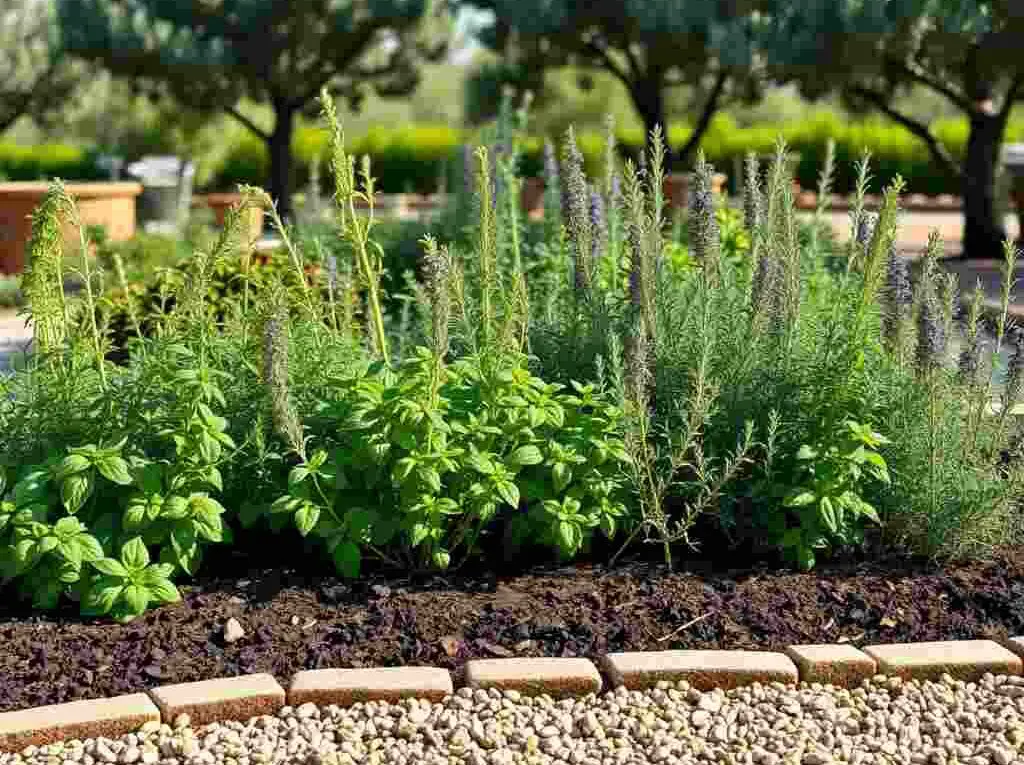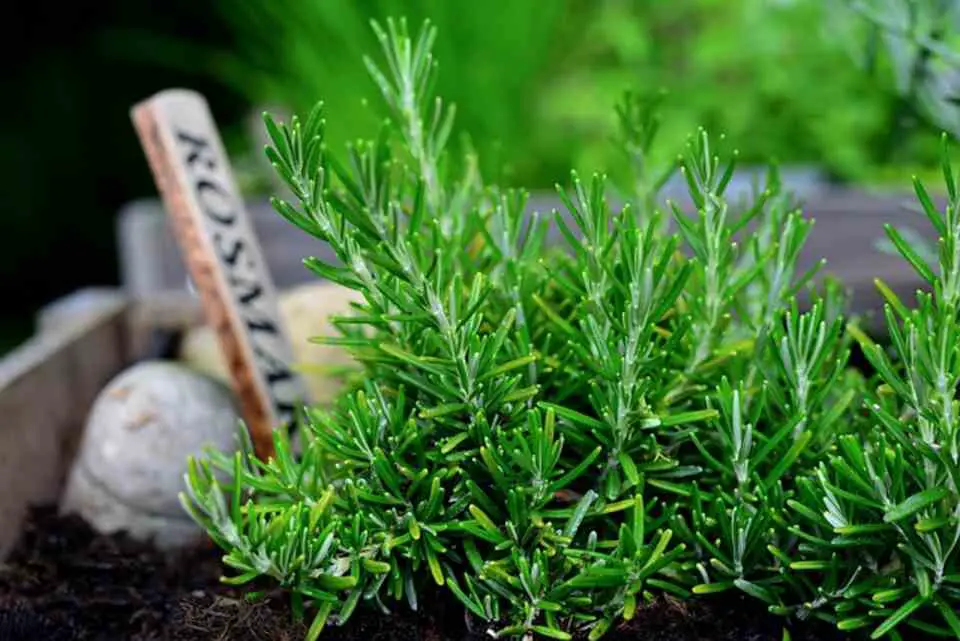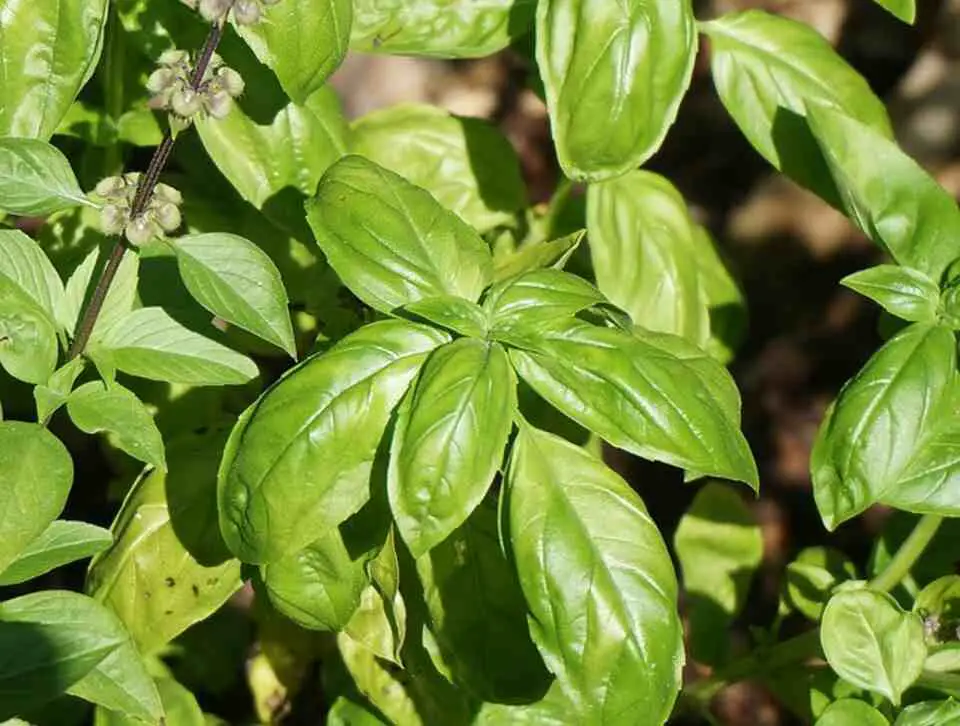Mediterranean Herbs to Plant Together 🌿: Best Herb Combos!
Ever stood in your garden, looking at your herbs, and thought, “Who’s friends with who?” Because yeah, herbs have their own social circles, and if you plant the right ones together, they’ll actually help each other grow better. But if you mix the wrong ones, your garden could turn into a turf war. Not fun.
If you’re dreaming of a Mediterranean herb garden that smells amazing, stays healthy, and grows like a dream, this is your guide. Let’s talk about the best Mediterranean herbs to plant together, how to keep the peace between your fragrant friends, and some fun tips to keep your garden thriving without turning into a jungle.
Table of Contents
- 1 Why Plant Herbs Together?
- 2 Meet the Mediterranean Herb Dream Teams 🌞
- 3 Herbs to Keep Apart 🚫: Avoid These Garden Drama Queens
- 4 How to Plant Mediterranean Herbs for Best Results 🌱
- 5 Pests and Problems? No Problem!
- 6 Bonus: Companion Planting Ideas for Mediterranean Herbs 🌼
- 7 Harvesting Your Mediterranean Herb Garden 🌿
- 8 Your Mediterranean Herb Garden: A Recipe for Success 🍽️
- 9 Quick Recap: Mediterranean Herb Buddies to Plant Together
- 10 Quick FAQs About Mediterranean Herbs 🌿❓
- 11 Quick Tips for Growing Mediterranean Herbs Like a Pro 🌿💡
- 12 Conclusion: Mediterranean Herb Gardening Made Easy🌿
- 13 Author
Why Plant Herbs Together?
Planting herbs together isn’t just about cramming more greenery into your garden bed (though that’s a bonus). It’s about creating a little ecosystem where the plants support each other, keeping pests at bay, improving growth, and sometimes even boosting flavor. Plus, it saves you space and makes gardening less of a hassle.
Here’s what a good herb squad can do:
- Pest control: Some herbs naturally repel bugs that might want to nibble on their neighbors.
- Better growth: Certain herbs improve soil quality or provide shade to sun-sensitive friends.
- Pollinator magnet: Grouping herbs that attract bees and butterflies helps your whole garden thrive.
- Flavor boost: Sometimes, nearby herbs actually enhance each other’s taste.
Meet the Mediterranean Herb Dream Teams 🌞
Basil & Tomatoes 🍅 + Rosemary & Sage
Basil and tomatoes: This duo is like the classic Hollywood couple of the garden. They go together in the kitchen and in the soil. Basil helps ward off pesky insects like aphids and tomato hornworms, and tomatoes provide a little shade and shelter for the basil. You plant them together, and you’ll probably see both thriving.
Why it works: Basil emits chemicals that bugs hate, giving tomatoes some natural protection. Plus, they both love sunny spots and well-drained soil, so their needs line up perfectly.
Fun fact: Basil and tomatoes both come from the same part of the world, the Mediterranean, so they’re basically long-lost gardening cousins.
Rosemary and sage: These two hearty Mediterranean herbs are low-maintenance and super tough. They thrive in dry, sunny spots and don’t mind poor soil. Both are natural bug repellents, mosquitoes and cabbage moths beware!
Why plant them together? They have similar water and soil needs, so you won’t have to do a juggling act with watering schedules. Plus, their scents mix nicely and keep pests at a distance.
Thyme & Oregano
If Mediterranean herbs were in a buddy comedy, thyme and oregano would be the quirky duo that just clicks.
Thyme: This little ground-hugger loves sun and well-drained soil. It’s great at repelling cabbage worms and other garden pests.
Oregano: Another sun-loving herb that’s easy to grow and can spread out a bit (but not as wild as mint). Oregano’s oils repel aphids and flea beetles.
Together, they make a dense, low-growing carpet that helps prevent weeds from taking over your garden. Also, thyme flowers attract pollinators, which is a big plus for your whole garden’s health.
Lavender & Marjoram
Here’s a couple that’s basically made for Instagram.
Lavender: Famous for its lovely purple blooms and heavenly scent, lavender draws bees, butterflies, and other pollinators in like a magnet.
Marjoram: This mild, sweet herb loves company and can benefit from the pollinators lavender attracts.
When you plant lavender and marjoram together, you get a beautiful, buzzing corner of your garden where pests are less likely to hang around, and your marjoram gets plenty of pollination love.
Herbs to Keep Apart 🚫: Avoid These Garden Drama Queens
Not every herb is a good neighbor, and planting the wrong herbs side-by-side can lead to slow growth, less flavor, or even outright sabotage.
Fennel: This one’s the troublemaker. Fennel releases chemicals that can stunt the growth of many herbs, including basil, sage, and dill. It’s best planted on its own, away from your other herbs.
Mint: Mint is like that friend who crashes on your couch and never leaves. It spreads underground like wildfire and will take over your garden bed if you’re not careful. To keep mint in check, plant it in pots or isolated containers.
How to Plant Mediterranean Herbs for Best Results 🌱
Sun, Sun, Sun
Almost all Mediterranean herbs adore sun. They need at least 6 hours of direct sunlight daily to thrive. If your garden has shady patches, save those spots for shade-tolerant plants (like parsley or chives).
Soil and Drainage: Keep It Dry-ish
Mediterranean herbs come from regions where summers are hot and dry. They hate soggy soil, so good drainage is a must. If your garden soil tends to hold water, mix in some sand or gravel, or plant your herbs in raised beds or containers.
Water Smart 💧
These herbs are tough, but they don’t want to be overwatered. Water deeply but infrequently to encourage strong roots. If you’re unsure, stick your finger in the soil, if it feels dry an inch down, it’s time to water.
Prune Like a Pro ✂️
Keep your herbs healthy and bushy by regularly snipping off the tops. This stops them from flowering too soon (which can make some herbs taste bitter) and encourages fresh new growth.
Pests and Problems? No Problem!
Here’s the thing: Mediterranean herbs are pretty pest-resistant thanks to their strong smells and oils. But sometimes, aphids, spider mites, or fungal diseases show up.
Natural fixes:
- Spray with diluted neem oil or soapy water.
- Encourage ladybugs, they love aphids.
- Plant pest-repelling herbs like rosemary near more vulnerable plants.
Bonus: Companion Planting Ideas for Mediterranean Herbs 🌼
Mix in some flowers like calendula, nasturtiums, or marigolds near your herbs. These flowers attract pollinators and help keep pests away.
Harvesting Your Mediterranean Herb Garden 🌿
When it’s time to pick your herbs:
- Harvest in the morning after the dew dries but before the heat sets in.
- Use sharp scissors or pruning shears to avoid crushing the stems.
- Don’t strip the plant, take only about one-third at a time so it can keep growing.
Your Mediterranean Herb Garden: A Recipe for Success 🍽️
Picture this: you walk out to your garden, sunlight warming your face, and the fresh smell of rosemary, thyme, and basil greets you like an old friend. You clip a few sprigs to toss in your salad or pasta, feeling proud that you grew this from scratch.
That’s the magic of planting Mediterranean herbs together. They look good, smell amazing, and reward you with fresh flavors all season long.
Quick Recap: Mediterranean Herb Buddies to Plant Together
| Herb Combo | Why They Work Together | Sun Needs | Water Needs |
|---|---|---|---|
| Basil + Tomatoes | Pest control & shade, perfect kitchen pair | Full sun | Moderate |
| Rosemary + Sage | Similar dry soil needs, repel pests | Full sun | Low |
| Thyme + Oregano | Ground cover & pest control | Full sun | Low |
| Lavender + Marjoram | Pollinator magnets & pest repellents | Full sun | Low |
Quick FAQs About Mediterranean Herbs 🌿❓
Q: Can I plant all Mediterranean herbs together in one garden bed?
A: You can, but be mindful of their water needs and growth habits. Group herbs with similar watering requirements and watch out for aggressive growers like mint or fennel, they’re best kept separate.
Q: How much sunlight do Mediterranean herbs need?
A: Most love full sun, around 6 to 8 hours a day. Some, like mint, can handle a bit of shade, but generally, more sun means healthier, more flavorful herbs.
Q: Can I grow Mediterranean herbs indoors?
A: Yes! With enough sunlight (a south-facing window helps) and good drainage, many Mediterranean herbs thrive indoors in pots.
Q: How often should I water Mediterranean herbs?
A: These herbs prefer well-drained soil and don’t like soggy roots. Water when the top inch of soil feels dry. Overwatering can lead to root rot.
Q: When is the best time to harvest herbs?
A: Harvest regularly, but avoid cutting more than one-third of the plant at a time. Morning after the dew dries is best for flavor.
Quick Tips for Growing Mediterranean Herbs Like a Pro 🌿💡
- Rotate your herbs every year if you’re planting in the same spot to avoid soil depletion and disease build-up.
- Use mulch to keep soil moist but not wet and to suppress weeds.
- Prune often to encourage bushier growth and stop your herbs from flowering too soon. Flowering can reduce leaf flavor.
- Feed sparingly, Mediterranean herbs are used to lean soils, so a little compost or balanced fertilizer during the growing season is enough.
- Keep an eye out for pests like aphids or spider mites. Natural sprays like neem oil or soapy water can help.
- Try companion planting, for example, basil near tomatoes can improve flavor and repel some pests.
Conclusion: Mediterranean Herb Gardening Made Easy🌿
Planting Mediterranean herbs together isn’t just about filling your garden with green stuff, it’s about creating a healthy, thriving community of plants that support each other, repel pests naturally, and bring fresh flavors right to your kitchen. By pairing the right herbs, paying attention to sunlight, soil, and watering needs, and keeping a few troublemakers like fennel and mint in check, you’ll set yourself up for gardening success.
Whether you’re growing basil with tomatoes, pairing rosemary and sage, or planting thyme alongside oregano, these combinations will help you make the most of your space and enjoy a fragrant, flavorful herb garden all season long. So get out there, dig in, and enjoy the simple pleasure of fresh Mediterranean herbs right at your fingertips.
Happy gardening!









